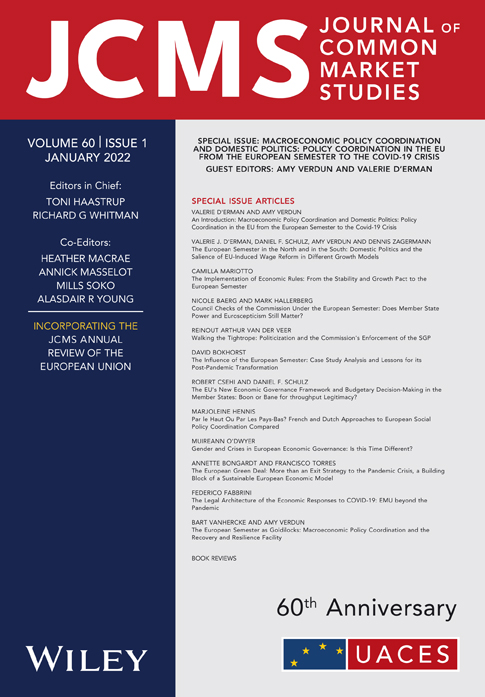New article in the Journal of Common Market Studies (with Patricia Goff, open access): Explaining Sub-Federal Variation in Trade Agreement Negotiations: The Case of CETA
February 1, 2022

Abstract
Sub-federal units have emerged as increasingly important actors in international trade policy. This is puzzling as they usually have no formal competencies in this area. Using the Comprehensive Economic and Trade Agreement (CETA) between Canada and the European Union as a case study, this article examines one key driver behind this development - the provisions in new free trade agreements. The article conceptualizes such provisions as instances of negative and positive integration. We show that while the Canadian provinces largely supported both types of provisions, sub-federal units in Belgium, Germany and Austria resisted unfettered liberalization through negative integration and market-creating positive integration. At the same time, they demanded stronger market-correcting positive integration measures. Three categories of sub-federal interests explain these differences in motivation. The Canadian province’s engagement was motivated by (regional) economic interests, whereas bureaucratic self-interest and political interests mobilized sub-federal units in the European federations.